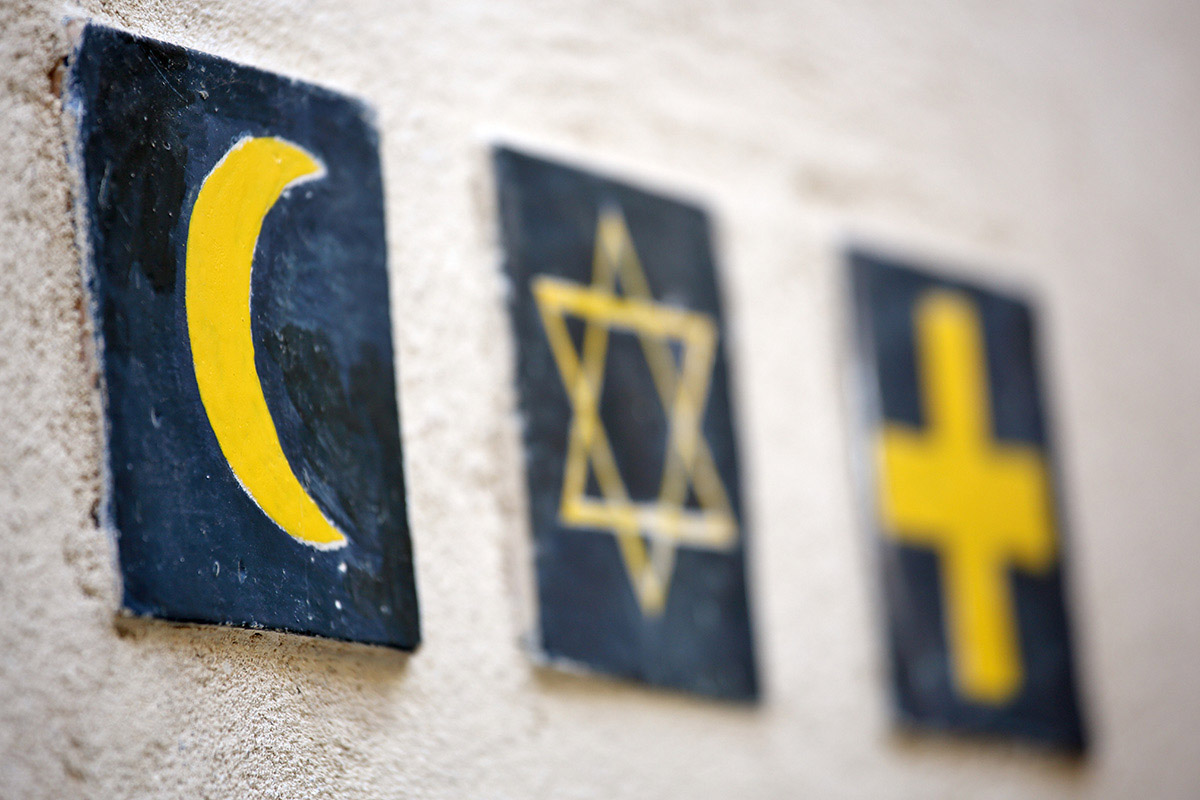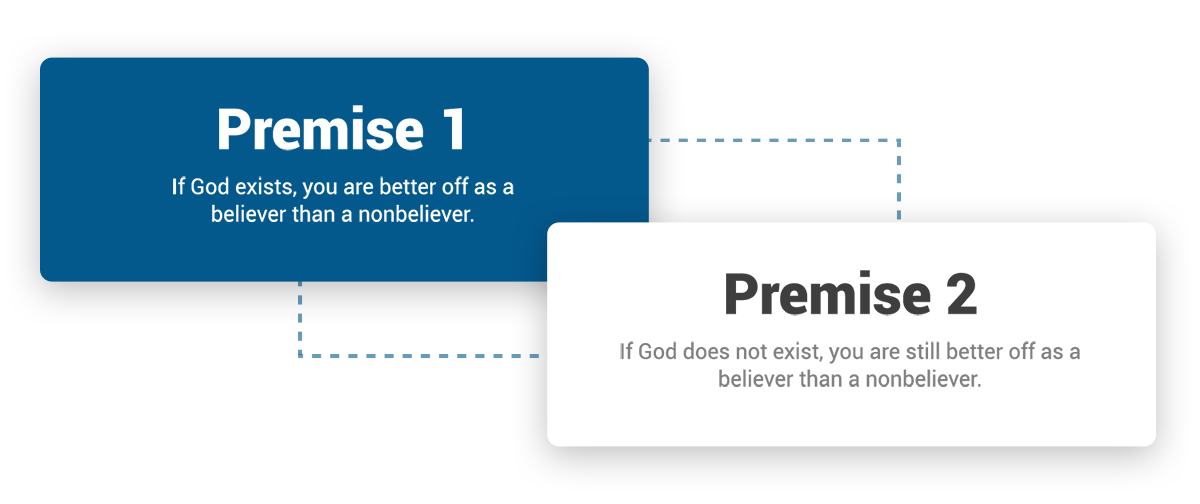WHY ARE THERE DIFFERENT RELIGIONS?
WHY ARE THERE DIFFERENT RELIGIONS?
Let’s Explore The Answer
Let’s Explore The Answer
While there are only a few major religions in the world, it’s believed that there are tens of thousands of belief systems that branched off from those few. Each one has its own doctrines, beliefs, practices, and forms of deities or non-deities. Interestingly enough, if you asked the followers of each religion why they believe what they do, their answers would be as varied as the number of religious sects that exist.
So what is religion and why are there so many variations from which to choose? Simply put, religion is a particular system of beliefs usually involving some type of moral code followed by its followers. And as each individual seeks to find meaning in life, their own unique journey takes them on an exploration of various religious experiences as seen through the lens of their particular faith.
Today, we’ll take a look at what skeptics and atheists say about religion as compared to what the Bible says.
Living On The Edge
Learn More About God
Sign up to gain immediate access to free sermon MP3s, devotionals, blog content, and more.


What The Bible Says
The Bible talks about religion in James 1:27 by saying, “Religion that God our Father accepts as pure and faultless is this: to look after orphans and widows in their distress and to keep oneself from being polluted by the world.” This simplistic description is far different from the rules, rituals, and hard-to-follow standards found in many of the world’s religions today.
While some would argue that Christianity is just another religion, each with its own set of beliefs and doctrines, the key difference between Christianity and other religions is that it’s based around relationship. As stated in Zephaniah 3:17, “The Lord your God is in your midst, a mighty one who will save; he will rejoice over you with gladness; he will quiet you by his love; he will exult over you with loud singing.”
This passage shows that Christianity is more about a relationship with the Living God rather than a set of rules to follow. From this relationship stems the guiding principals that improve relationships with others, including those of love, of friendship or fellowship, of family, and even of business or work affiliation, which is one of the reasons it remains so relevant in today’s world. Christianity has a strong focus on community and connecting with each other through a shared connection to Christ, and while there’ll always be many different religions to choose from, Biblical Christianity is the only one that invites people to enter into a relationship with the Savior of the world. Perhaps, Christianity is worth a second look, as it sets itself apart from every other religion on the planet in its own unique way.
What would happen if you embraced the possibility that the God of the Bible really did create the world and really does care for you?
Pascal’s Wager

In the seventeenth century, a famous philosopher and mathematician, Blaise Pascal, encouraged people to make a wager when it came to belief in God. If a person chose to believe in God and God did exist, that person would gain everything (eternal life). If a person chose to believe in God and God did not exist, that person would lose nothing. On the other hand, if a person chose not to believe in God and he was right, he would lose nothing. But if that person did not believe in God and he was wrong- he would lose everything (lose eternal life).
This wager can be said another way:

Based on this logic, Pascal suggested the rational person would choose to believe in God as believing offers a person everything (eternal life) while losing nothing. Wherever you are in your faith journey, would you consider taking Pascal’s wager? If the good God of the Bible exists, you have nothing to lose and everything to gain by believing in Him today.
We’d Like to Provide More Resources to Help You Learn About God
To stay in touch with weekly resources from our team, fill out your information below.
